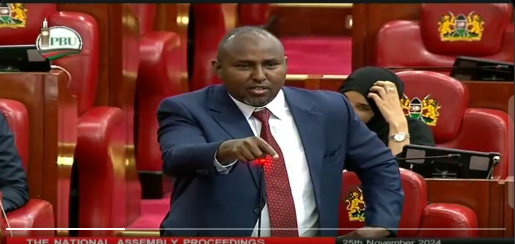Junet Mohamed recently criticized the failed Adani-JKIA deal, which has stirred political tension in Kenya.
The controversial plan proposed leasing Jomo Kenyatta International Airport (JKIA) to the Adani Group, an Indian conglomerate, for 30 years in exchange for infrastructure development.
Public outcry ensued over concerns of corruption, potential job losses, and the risk of relinquishing national assets to a foreign firm embroiled in global fraud allegations.
President William Ruto ultimately canceled the deal, citing the need for transparency and accountability in safeguarding Kenya’s strategic interests.
Junet Mohamed’s reaction reflects a broader discontent within opposition circles, who accuse the government of mishandling key economic policies.
His critique also highlights the political rivalry between opposition leaders and Ruto’s administration.
The collapse of the deal follows a string of corruption allegations against Adani Group globally, including a U.S. indictment for bribery and fraud.
These revelations further eroded trust in the deal’s viability, leaving Kenya searching for alternative strategies to finance critical infrastructure projects.
As public discourse continues, calls for Ruto’s resignation from opposition figures like Junet underline the political stakes.
However, the government’s decision to cancel the deal may signal a commitment to reforming how public-private partnerships are managed in Kenya.
This incident underscores the importance of prioritizing national interests and public trust in the management of large-scale investments.
Junet Mohamed is lecturing Kenyans about the collapsed Adani-JKIA deal. He is bitter because he will be forced to refund the money he received as a bribe.
— Cornelius K. Ronoh (@itskipronoh) November 25, 2024
Bwana Junet, kama William Ruto ameshindwa na kazi, then let him resign! pic.twitter.com/3iPd6UD4m2


